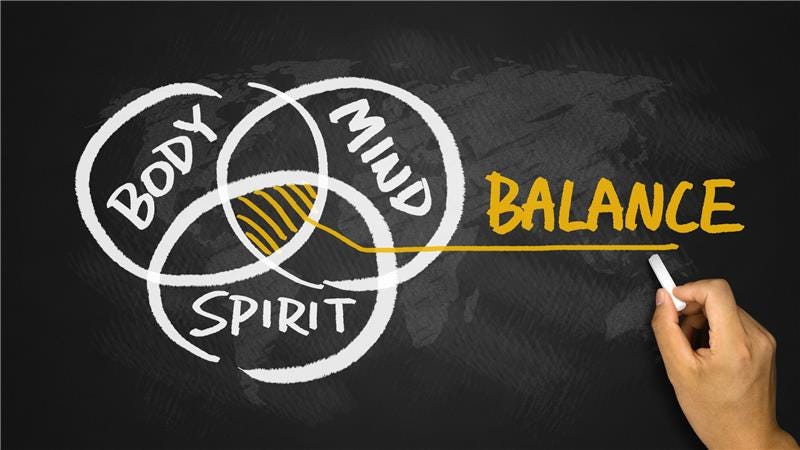
Water-Soluble Vitamins: A Quick Guide
Table of Contents
-
- Understanding Water-Soluble Vitamins
- The Vitamin B Complex: A Group of Essential Nutrients
- Vitamin C: The Immune & Antioxidant Powerhouse
- How Water-Soluble Vitamins Function in the Body
- Best Food Sources of Water-Soluble Vitamins
- Signs of Deficiency & Who May Need Supplements
- Choosing the Right Water-Soluble Vitamin Supplements
- Frequently Asked Questions
- Final Thoughts
- References
Understanding Water-Soluble Vitamins
Water-soluble vitamins are essential nutrients that the body needs for various functions, including energy production, immune support, and brain function. Unlike fat-soluble vitamins, these do not get stored in the body and must be consumed regularly through diet or supplementation.
The two main types of water-soluble vitamins include:
- Vitamin B Complex: A group of eight essential B vitamins that help with metabolism, nerve function, and cell health.
- Vitamin C: A powerful antioxidant that supports the immune system, collagen production, and overall cellular health.
Since these vitamins are excreted in urine, they need to be replenished daily through a balanced diet or supplements. This guide explores the benefits, food sources, and importance of water-soluble vitamins.
The Vitamin B Complex: A Group of Essential Nutrients
The B vitamins are crucial for energy metabolism, brain function, and cell growth. Each plays a unique role in maintaining overall health.
Key Functions of B Vitamins
The B-complex vitamins include:
- Vitamin B1 (Thiamine): Supports nervous system function and carbohydrate metabolism.
- Vitamin B2 (Riboflavin): Helps with energy production and skin health.
- Vitamin B3 (Niacin): Plays a role in DNA repair and cardiovascular health.
- Vitamin B5 (Pantothenic Acid): Essential for hormone synthesis and metabolic processes.
- Vitamin B6 (Pyridoxine): Involved in neurotransmitter function and red blood cell production.
- Vitamin B7 (Biotin): Important for hair, skin, and nail health.
- Vitamin B9 (Folate): Crucial for DNA synthesis and prenatal health.
- Vitamin B12 (Cobalamin): Supports nerve function and red blood cell formation.
Deficiencies in B vitamins can lead to fatigue, neurological issues, and weakened immune function. Ensuring an adequate intake is key to maintaining optimal health.
Vitamin C: The Immune & Antioxidant Powerhouse
Vitamin C, also known as ascorbic acid, is one of the most well-known water-soluble vitamins. It plays a critical role in immune function, collagen production, and antioxidant defense.
Key Benefits of Vitamin C
- Supports immune function by helping white blood cells fight infections.
- Boosts collagen synthesis, promoting healthy skin, joints, and wound healing.
- Acts as a powerful antioxidant, protecting cells from oxidative damage.
- Enhances iron absorption, reducing the risk of iron deficiency anemia.
Because the body does not produce or store vitamin C, it must be obtained through diet or supplementation. Deficiency can lead to fatigue, weakened immunity, and scurvy (PubMed Study).
How Water-Soluble Vitamins Function in the Body
Unlike fat-soluble vitamins, water-soluble vitamins are not stored in body fat and must be consumed daily. They are absorbed in the small intestine and transported through the bloodstream to where they are needed.
Absorption and Excretion
Since these vitamins are dissolved in water, excess amounts are typically excreted in urine rather than stored. This is why consistent intake is crucial for maintaining optimal health.
Synergistic Effects with Other Nutrients
Water-soluble vitamins often work in synergy with other nutrients. For example:
- Vitamin C enhances iron absorption, preventing deficiencies.
- B vitamins help metabolize macronutrients, ensuring proper energy production.
- B6, B9, and B12 work together to support brain function and red blood cell formation.
Because of these interactions, a balanced intake of multiple water-soluble vitamins is often recommended for optimal benefits.
Best Food Sources of Water-Soluble Vitamins
Incorporating a variety of nutrient-rich foods into your diet is the best way to meet daily vitamin needs. Here are some of the best natural sources:
Foods High in B Vitamins
- Thiamine (B1): Whole grains, pork, legumes, and sunflower seeds.
- Riboflavin (B2): Dairy products, eggs, almonds, and spinach.
- Niacin (B3): Poultry, peanuts, mushrooms, and brown rice.
- Pantothenic Acid (B5): Avocados, eggs, beef, and sweet potatoes.
- Pyridoxine (B6): Bananas, potatoes, salmon, and chicken.
- Biotin (B7): Eggs, nuts, seeds, and cauliflower.
- Folate (B9): Leafy greens, beans, oranges, and fortified grains.
- Cobalamin (B12): Fish, beef, dairy, and fortified plant-based milk.
Foods High in Vitamin C
- Citrus Fruits: Oranges, lemons, and grapefruits.
- Berries: Strawberries, blueberries, and raspberries.
- Vegetables: Bell peppers, broccoli, Brussels sprouts, and tomatoes.
- Leafy Greens: Spinach, kale, and Swiss chard.
Eating a variety of these foods ensures a well-rounded intake of water-soluble vitamins, promoting optimal health and wellness.
Signs of Deficiency & Who May Need Supplements
Since water-soluble vitamins are not stored in the body, deficiencies can develop quickly if daily intake is insufficient. Certain groups may be at a higher risk of developing deficiencies due to dietary restrictions, medical conditions, or increased nutritional demands.
Common Signs of Water-Soluble Vitamin Deficiency
- Fatigue and weakness – Often linked to deficiencies in B12, B6, and folate.
- Cognitive decline and brain fog – Can be caused by low B12, niacin, or thiamine levels.
- Poor wound healing and easy bruising – May indicate low vitamin C levels.
- Skin issues, such as dryness or rashes – Associated with biotin or riboflavin deficiencies.
- Nerve tingling or numbness – Often due to B12 deficiency, which affects the nervous system.
- Anemia or pale skin – Can result from insufficient folate, B12, or B6 intake.
Who May Benefit from Water-Soluble Vitamin Supplements?
While a balanced diet should ideally provide all necessary vitamins, some people may need supplementation, including:
- Vegetarians & Vegans: May struggle to get enough B12, riboflavin, and biotin from plant-based foods.
- Pregnant Women: Require higher folate intake to support fetal development and prevent birth defects.
- Athletes & Highly Active Individuals: May need additional B vitamins for energy metabolism.
- Older Adults: Often have reduced absorption of B12, making supplementation essential.
- Individuals with Malabsorption Conditions: Those with celiac disease, Crohn’s, or IBS may need supplemental support.
- People with High Stress Levels: Chronic stress can deplete B vitamins, leading to fatigue and mental exhaustion.
Choosing the Right Water-Soluble Vitamin Supplements
Not all supplements are created equal. When selecting a high-quality water-soluble vitamin supplement, consider these key factors:
Look for Third-Party Testing
Choose supplements that are certified by third-party organizations like NSF, USP, or ConsumerLab to ensure potency and purity.
Select Bioavailable Forms
Some forms of vitamins are more easily absorbed than others. Look for:
- Methylcobalamin (B12) instead of cyanocobalamin for better absorption.
- Pyridoxal-5-phosphate (B6) instead of pyridoxine hydrochloride.
- L-ascorbic acid (Vitamin C) for optimal antioxidant benefits.
Avoid Artificial Additives
Opt for clean supplements without synthetic fillers, artificial colors, or unnecessary preservatives.
Choose Combination Formulas When Needed
Some water-soluble vitamins work better together, such as B vitamins in a complex formulation or Vitamin C paired with bioflavonoids for enhanced absorption.
By choosing high-quality supplements and focusing on nutrient-rich foods, you can ensure your body gets the necessary water-soluble vitamins for optimal energy, immune function, and overall well-being.
Frequently Asked Questions
1. How often should I take water-soluble vitamins?
Water-soluble vitamins are not stored in the body and need to be consumed daily through food or supplements. Since excess amounts are excreted in urine, maintaining a regular intake is essential for consistent benefits.
2. Can I take too much of a water-soluble vitamin?
While water-soluble vitamins are generally less likely to cause toxicity than fat-soluble vitamins, excessive doses can still have side effects. For example, high doses of vitamin C may cause digestive discomfort, while excessive B6 intake may lead to nerve damage over time.
3. Which water-soluble vitamins are best for energy?
B vitamins, especially B12, B6, and niacin (B3), are crucial for energy metabolism, brain function, and neurotransmitter production. A deficiency in these vitamins can lead to fatigue, brain fog, and reduced cognitive performance.
4. Can vitamin C boost my immune system?
Vitamin C plays a key role in immune defense by supporting white blood cell activity and acting as an antioxidant. While it does not prevent illnesses, it may reduce the duration and severity of common colds in some cases.
5. Should I take a B-complex supplement or individual B vitamins?
If you have a specific deficiency, taking an individual B vitamin (e.g., B12 for vegans) may be beneficial. However, for overall support, a well-balanced B-complex supplement ensures proper synergy among all B vitamins for energy, nerve health, and metabolism.
Final Thoughts on Water-Soluble Vitamins
Water-soluble vitamins are essential for daily health, energy production, immune function, and brain performance. Since they are not stored in the body, a consistent intake through nutrient-rich foods or high-quality supplements is necessary to maintain optimal levels.
Key Takeaways
- Vitamin B-complex supports energy, metabolism, and nerve function.
- Vitamin C is a powerful antioxidant that enhances immune health and collagen production.
- Deficiencies in water-soluble vitamins can lead to fatigue, cognitive decline, and weakened immunity.
- Certain groups, like vegans, older adults, and pregnant women, may need additional supplementation.
- Choosing high-quality, bioavailable supplements ensures optimal absorption and benefits.
By focusing on a well-balanced diet rich in whole foods and incorporating supplements when necessary, you can effectively support your body's energy levels, immune function, and overall vitality.









